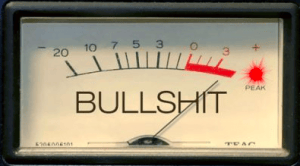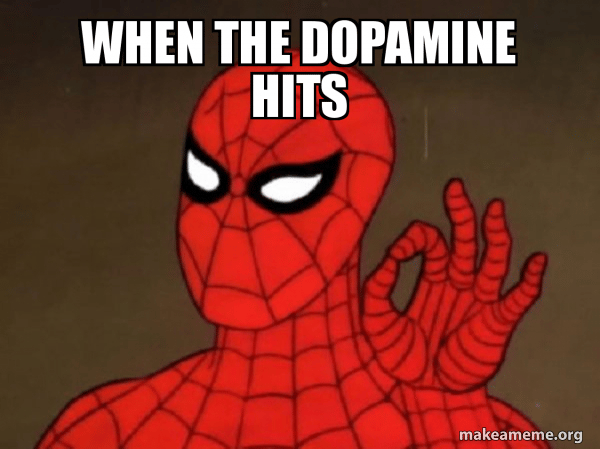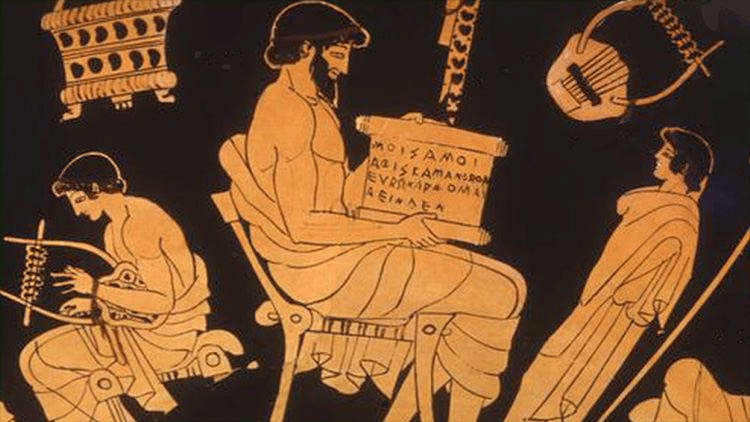- Enhancing Brain
- Posts
- Does Listening to Music Improve Your Memory?
Does Listening to Music Improve Your Memory?

Every time I listen to my favorite 2000s bangers, something weird happens…
I remember random moments from 15 years ago, like walking home from school, the smell of cheap shampoo, or what snack I was eating when I was like 10 years old.
At that exact moment, while the song is playing, it’s like I’m back there…
Like the music saved those memories in a vault, and now music is like a key unlocking them.
Does music actually help you remember things?
so, I did some research, to answer that question…
✳️ all sources below the article.
Table of Contents
What Music Does to Your Brain
When you listen to music, your brain lights up in multiple areas at once:
🧠 Auditory cortex (processing sound)
❤️ Limbic system (emotions + memory)
🏗️ Prefrontal cortex (decision-making + recall)
🧬 Even your motor system gets involved
It’s one of the only activities that activate your entire brain at once.
fMRI scans show that familiar music triggers the medial prefrontal cortex, the same area tied to autobiographical memory and emotions.
This region stays intact longer in people with Alzheimer’s, which is why they often remember old songs when everything else is gone.
Music reaches your deepest memory vaults.
And the more emotionally powerful the music is, the stronger the brain response, especially in the regions responsible for learning and remembering.
The Mozart Myth

You’ve probably heard it: “Listening to Mozart makes you smarter.”
That’s the Mozart Effect, and it’s mostly BS.
🟧 Here’s what actually happened:
🔸 In 1993, a study showed that 10 mins of Mozart gave students a small bump in spatial reasoning, not memory, and not IQ. The boost lasted 10–15 minutes.
Then the media twisted it… Parents started blasting Mozart at babies.
Later studies found the real reason behind the effect:
🔸 It wasn’t Mozart, it was enjoyment.
If you like the music, your brain lights up more. That boosts focus and temporary performance, no matter the genre.
In fact, kids who listened to Blur (the band) did better than Mozart listeners in some studies. They just enjoyed it more than Mozart…
Genre doesn’t matter, what matters is how you feel.
Dopamine and Memory

Here’s why music you love is so powerful for memory: dopamine.
When you hear a song you enjoy, your brain hits the reward button, releasing dopamine into the same brain pathway that lights up for food, hugs, and achievement.
That dopamine doesn’t just feel good - it tells your brain, “remember this.”
🟧 A 2021 study found:
🔸 The more pleasure people felt from music,
🔸 The better they remembered it 24 hours later
🔸 But when dopamine was blocked? The memory boost disappeared.
So if a song gives you chills or makes you feel something deep, that’s your brain locking it in.
Do Musicians Have Better Memory?
Yes. And the science backs it.
🟧 A meta-analysis of 29 studies found that musicians outperform non-musicians in:
🧠 Short-term memory (effect size: 0.57)
🧠 Working memory (0.56)
🧠 Long-term memory (0.29)
Their edge was strongest with sound-related tasks, like remembering melodies or verbal info. Not so much with visual stuff like shapes or images.
🟧 That’s because musicians are constantly:
🔸 Listening
🔸 Memorizing sequences
🔸 Coordinating sound + movement
It’s brain training on repeat, and you don’t need to be a pro to benefit.
Learning an instrument later in life still improves memory and slows cognitive decline.
Even just active listening helps: try focusing on instruments, patterns, or predicting what’s next.
The more engaged you are with music, the more your brain learns to remember.
Does Music Help You Study?
It can, if you use it right…
✅ When it helps:
🔸 Low-volume instrumental music improves focus and recall
🔸 Familiar songs are less distracting than new ones
🔸 Chill genres (lo-fi, piano, ambient) reduce stress = better memory
🔴 When it hurts:
🔹 Music with lyrics kills reading comprehension and verbal memory
🔹 Fast or loud music overwhelms attention
🔹 Complex tasks (like solving math or writing) often work best in silence
💡 Best setup for study:
🔸 🎧 Instrumental only
🔸 Low to Moderate volume
🔸 Repeat the same playlist to build a memory cue
🔸 Bonus: Try 40 Hz binaural beats for focus
Music Therapy and Memory Loss
Even when memory starts to fade… music sticks.
In Alzheimer’s and dementia, patients often forget names, places, even faces. But play an old favorite song, and suddenly they sing along word for word.
That’s because music taps brain regions that stay intact longer.
🟧 A meta-analysis of 24 clinical trials found music therapy:
🔸 Improves cognitive function (if done consistently - 12+ weeks, 8+ hours total)
🔸 Reduces depression and anxiety
🔸 Boosts autobiographical memory recall
🟦 Caregivers use:
🔹 Personalized playlists
🔹 Group singing sessions
🔹 Memory-trigger songs for emotional connection
Music becomes a backdoor into memory, even when the front door is locked.
How to Use Music to Boost Your Memory
Here’s how to use music to help you remember more, in studying, daily life, and long-term brain health…
🟦 For studying & learning new material:
🔹 Use instrumental music with no lyrics
🔹 Keep volume low - like a soft background hum
🔹 Choose familiar playlists to build memory cues
🔹 Pair the same playlist with specific subjects (brain forms associations)
🔹 Try 40 Hz binaural beats - shown to boost focus and working memory
🟦 For memorizing facts or lists:
🔹 Turn info into a jingle or rhythm (yes, like the ABCs)
🔹 Speak or repeat it in time with background beats
🔹 Use melody to chunk and remember longer phrases
🔹 Repetition over time = stronger recall
🟦 For daily routines & habit building:
🔹 Play the same song during your morning/evening routine
🔹 Use music as an anchor, your brain links the task to the track
🔹 Set custom ringtones or alarms for reminders using specific songs
🟦 For emotional recall or personal memories:
🔹 Revisit playlists from past life periods
🔹 Keep a “memory playlist” for nostalgia or journaling
🔹 Listen with intention, reflect on what feelings or moments come up
The more emotion and repetition you attach to music, the more your brain stores with it.
Music & Memory Through History

Music and memory go way back, like, ancient civilization back.
Long before books or hard drives, humans used music to remember.
🔸 In ancient Greece, the Muses (goddesses of art) were said to be daughters of Mnemosyne, the goddess of memory.
🔸 Indigenous cultures passed down stories and rituals through song for generations.
🔸 Epic poems like the Iliad were memorized using rhythm and melody, some were 12,000+ lines long.
🔸 Even 5,000 years ago in Mesopotamia, people wrote down musical instructions on clay tablets.
Because melody and rhythm make things easier to remember.
Music was humanity’s first memory system, and it still works…
What Doesn’t Work (and why)
Not all music helps your memory, some of it can wreck your focus.
🔴 Music with lyrics while studying? Bad idea.
Your brain’s language system gets overloaded, reading + lyrics = chaos.
🔴 Loud or fast music ramps up your nervous system.
It can make you anxious, distracted, or mentally tired faster.
🔴 Unfamiliar music steals attention.
Your brain starts analyzing it instead of focusing.
🔴 Overusing music kills the effect.
If you listen to the same study playlist 24/7, your brain tunes it out.
🔴 Wrong vibe for the task = brain mismatch.
Need deep focus? Skip the hype tracks. Writing? Avoid vocals. Simple task? Music might help. Complex one? Silence might win.
Key Stats
Just how powerful is music for memory? The numbers say a lot
🔸 0.57 - Effect size for short-term memory in musicians
🔸 0.56 - Effect size for working memory
🔸 0.29 - Effect size for long-term memory
(Source: Meta-analysis of 29 studies, source link below)
🔸 24 hours - How long music-induced dopamine can improve memory recall
🔸 30% - Songs that trigger autobiographical memories in lab studies
🔸 60% - Students who listen to music while studying
🔸 40 Hz - Gamma brainwave frequency linked to better attention & memory
🔸 12 weeks / 8+ hours - The minimum music therapy “dose” that improves cognition in dementia patients
🔸 1 academic year - Advantage for high schoolers in music classes vs. non-musicians
Final Take
So… does listening to music improve your memory
Yeah, but not like a magic switch.
Music doesn’t make you instantly smarter. But it does make your brain more ready to learn, focus, and remember.
🔹 It boosts dopamine
🔹 Lowers stress
🔹 Lights up memory regions
🔹 Builds emotional associations
🔹 And literally rewires your brain if you play or engage with it deeply
But only if you use it right
🔸 No lyrics during verbal tasks
🔸 Chill beats for focus
🔸 Music you actually enjoy
🔸 Repetition builds stronger memory links
🔸 Don’t overuse it - make it intentional
Sources
🔹 Music can boost memory and mood - Harvard Health
🔹 Musicians have better memory than nonmusicians: A meta-analysis (PLOS ONE)
🔹 Dopamine modulations of reward-driven music memory consolidation (PubMed)
🔹 A ‘Music, Mind and Movement’ Program for People With Dementia: Initial Evidence of Improved Cognition (Frontiers in Psychology)
🔹 Mozart effect article (University of Leeds)
🔹 Music, memory and emotion (PubMed Central)
🔹 Musicians have better memory than nonmusicians: A meta-analysis (PubMed)
🔹 Mozart effect | EBSCO
🔹 How Music Affects Memory and Concentration - Levine Music
🔹 Neuroscientists explore the intersection of music and memory (ScienceDaily)
Tools & Resources
🔸 Mind Lab Pro - Helps me stay focused and mentally sharp .
🔸 Brain.fm - Music designed to boost focus, memory, and sleep.
🔸 Coffitivity - Ambient coffee shop noise if music feels too distracting.
🔸 Endel - Personalized background soundscapes for deep work or relaxation.
🔸 40 Hz Binaural Beats (YouTube/Spotify) - Try “gamma waves” playlists to test memory enhancement potential.
